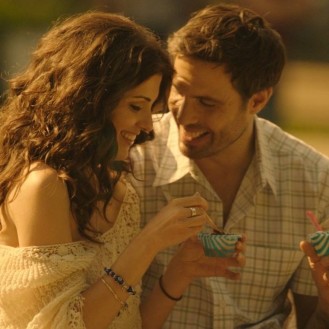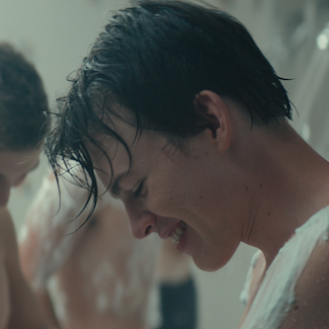By: Jessica Goddard
A film that could’ve been a standard biographical piece turns unexpectedly investigative in Whitney, a new documentary from Kevin Macdonald (Touching the Void, Life in a Day) about the life and legend of superstar Whitney Houston. This is the first and only Whitney Houston documentary to be authorized by the family, and their participation and exclusive footage adds credibility.
The documentary explores a question most people probably assume they know the answer to: how did a middle-class church choir enthusiast go from being a musical prodigy to sitting across from Diane Sawyer snapping “crack is whack”? How did one of the most undeniable vocal talents of the 20th century go from winning Grammys to media outlets quoting a frustrated concertgoer as saying Whitney “couldn’t entertain a dead rat” after a disastrous show in 2010?
While some of the contributing factors are well-known and obvious, the film drops a couple of bombshells that make for a great documentary, but raise ethical concerns around these types of posthumous profiles.
Heartbroken as a teenager by the disintegration of her parents’ marriage, Whitney chases a successful family life with Bobby Brown, though neither of them seem able to give parenthood the devotion it deserves. Whitney’s close relationship with childhood friend Robyn Crawford breaks down until Whitney is forced to choose between the fed-up Robyn and the destructive Bobby, and of course, the rest is history.
Lending the film extra depth are the many interviews with various members of Whitney’s family and former entourage. Surprisingly, this does include ex-husband Bobby Brown, though he gets away with refusing to talk about Whitney’s drug use and any potential influence he might have had in regards to this. The film doesn’t explicitly say Bobby Brown was jealous of his wife’s superstardom next to his dwindling relevance, and doesn’t definitively say that Whitney’s father became a leech and took advantage of her, but the interviewees make all of this clear, and we get it.
But it’s not all sad – just mostly sad. There’s no shortage of goosebump-inducing vocal performances to enjoy, and at one point Whitney and her mother throw shade at Paula Abdul and Janet Jackson behind the scenes.
Fortunately for those who love a good story but unfortunately for the real people at the centre of them, the rise and fall of a too-young, too-successful pop singer has become a common, predictable (if not formulaic) saga. It’s a combination of hindsight and our modern familiarity with this cycle that makes Whitney an especially affecting watch.
Whitney compellingly explores the ways in which generations pass down and replicate trauma, how proximity to fame and power corrupts, and the death-by-a-thousand-cuts nature of repeated exploitation. Most of all, however, this film attempts to delve into the motives and psyche of a complicated, enigmatic woman, who is regrettably not here to confirm or deny its suppositions.
**********
Do You Tweet? Follow These Tweeple:
Jessica Goddard: @TheJGod





Be the first to comment